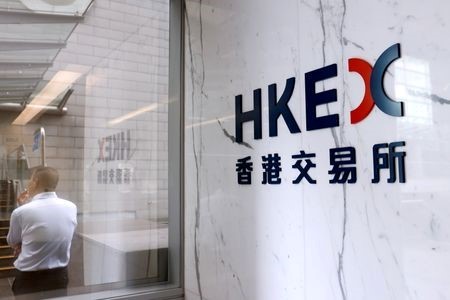




Philippines Trade Update: Imports weaken on tepid demand
 DOWNLOAD
DOWNLOAD

Policy Rate Updates: BSP outlook — cloudy with a chance of rate cut
 DOWNLOAD
DOWNLOAD

January Economic Update: Growth slows, prices rise
 DOWNLOAD
DOWNLOAD


Hong Kong bourse can go harder on tycoons

HONG KONG – Hong Kong’s tycoons are acting like the masses are about to seize the means of production. The city’s stock exchange is proposing reforms that would make listed companies more accountable to independent shareholders. The Chamber of Hong Kong Listed Companies, a lobby group dominated by mogul-owned businesses, decried the proposals as “inappropriate” and tantamount to “micromanaging”. In truth, the bourse is treating them with kid gloves.
The new rules, if adopted, are pretty basic, as far as they go. Their goal is to bolster the role of independent non-executive directors (INEDs), who must make up at least a third of every listed company’s board and are charged with mediating between controlling and minority shareholders. Among the better ideas are making companies appoint a lead independent director to hear concerns from investors; limiting INED tenure to nine years; and preventing them from sitting on more than six boards at once.
Direct access to a lead independent director would be an especially welcome change. It would provide a reliable channel to push back on potentially sketchy deals when owner-executives refuse to engage — a common problem.
Yet the exchange has left loopholes that tycoons can step through with gusto. Independent directors who hit the nine-year limit can return to the board after two years. And companies that don’t appoint a lead INED can simply explain why without facing any serious consequences.
Such deference to captains of industry might have made sense back when these China-savvy magnates’ corporate empires were as politically powerful as they were profitable. But in recent years their sway over Hong Kong’s affairs has been substantially supplanted by Beijing. On top of that, an exodus of home buyers has helped torpedo the property market that made them so wealthy and powerful.
The nuclear option has always been for the tycoons to take their business elsewhere. But their hometown remains a nexus of free-flowing capital and cross-border financial know-how that’s difficult to replicate. And longtime ties to the mainland combined with worsening US-China tensions make a move to Wall Street daunting at best.
That gives Hong Kong Exchanges and Clearing a chance to press its advantage. The company run by Bonnie Chan could impose stricter limits on independent directorship tenure and the number of boards individuals sit on, as well as impose actual punishments for those that fail to appoint a lead independent director. It could also shift responsibility over who appoints INEDs from controlling stakeholders to minority shareholders, ensuring that some members of every board were, on paper at least, as independent as possible.
The tycoons might carp and moan about having to adopt better governance practices. But they’re not going anywhere.
CONTEXT NEWS
Investors and listed companies are awaiting the final version of changes to Hong Kong Exchanges and Clearing’s corporate governance regime after the close of a consultation period on August 16. HKEX is expected to publish final revised rules in the coming months.
Rules proposed by the exchange would impose a nine-year cap on the board tenure of independent non-executive directors (INEDs), limit INEDs from sitting on more than six boards at once, and mandate that companies appoint a lead INED to address shareholder concerns when corporate channels prove inadequate—or explain their failure to do so.
(Editing by Antony Currie and Aditya Srivastav)
This article originally appeared on reuters.com





 By Reuters
By Reuters